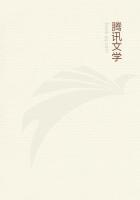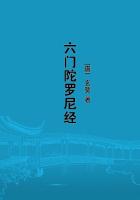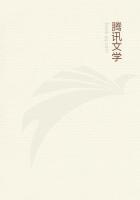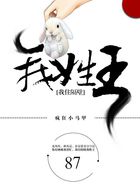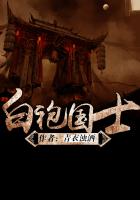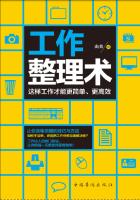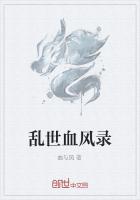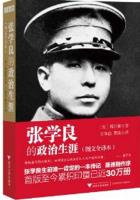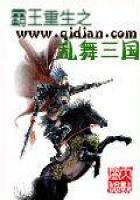Harvard College was a good school, but at bottom what the boy disliked most was any school at all. He did not want to be one in a hundred -- one per cent of an education. He regarded himself as the only person for whom his education had value, and he wanted the whole of it. He got barely half of an average. Long afterwards, when the devious path of life led him back to teach in his turn what no student naturally cared or needed to know, he diverted some dreary hours of faculty-meetings by looking up his record in the class-lists, and found himself graded precisely in the middle. In the one branch he most needed -- mathematics -- barring the few first scholars, failure was so nearly universal that no attempt at grading could have had value, and whether he stood fortieth or ninetieth must have been an accident or the personal favor of the professor. Here his education failed lamentably.
At best he could never have been a mathematician; at worst he would never have cared to be one; but he needed to read mathematics, like any other universal language, and he never reached the alphabet.
Beyond two or three Greek plays, the student got nothing from the ancient languages. Beyond some incoherent theories of free-trade and protection, he got little from Political Economy. He could not afterwards remember to have heard the name of Karl Marx mentioned, or the title of "Capital."
He was equally ignorant of Auguste Comte. These were the two writers of his time who most influenced its thought. The bit of practical teaching he afterwards reviewed with most curiosity was the course in Chemistry, which taught him a number of theories that befogged his mind for a lifetime.
The only teaching that appealed to his imagination was a course of lectures by Louis Agassiz on the Glacial Period and Paleontology, which had more influence on his curiosity than the rest of the college instruction altogether.
The entire work of the four years could have been easily put into the work of any four months in after life.
Harvard College was a negative force, and negative forces have value.
Slowly it weakened the violent political bias of childhood, not by putting interests in its place, but by mental habits which had no bias at all.
It would also have weakened the literary bias, if Adams had been capable of finding other amusement, but the climate kept him steady to desultory and useless reading, till he had run through libraries of volumes which he forgot even to their title-pages. Rather by instinct than by guidance, he turned to writing, and his professors or tutors occasionally gave his English composition a hesitating approval; but in that branch, as in all the rest, even when he made a long struggle for recognition, he never convinced his teachers that his abilities, at their best, warranted placing him on the rank-list, among the first third of his class. Instructors generally reach a fairly accurate gauge of their scholars' powers. Henry Adams himself held the opinion that his instructors were very nearly right, and when he became a professor in his turn, and made mortifying mistakes in ranking his scholars, he still obstinately insisted that on the whole, he was not far wrong. Student or professor, he accepted the negative standard because it was the standard of the school.
He never knew what other students thought of it, or what they thought they gained from it; nor would their opinion have much affected his. From the first, he wanted to be done with it, and stood watching vaguely for a path and a direction. The world outside seemed large, but the paths that led into it were not many and lay mostly through Boston, where he did not want to go. As it happened, by pure chance, the first door of escape that seemed to offer a hope led into Germany, and James Russell Lowell opened it.
Lowell, on succeeding Longfellow as Professor of Belles-Lettres, had duly gone to Germany, and had brought back whatever he found to bring.
The literary world then agreed that truth survived in Germany alone, and Carlyle, Matthew Arnold, Renan, Emerson, with scores of popular followers, taught the German faith. The literary world had revolted against the yoke of coming capitalism -- its money-lenders, its bank directors, and its railway magnates. Thackeray and Dickens followed Balzac in scratching and biting the unfortunate middle class with savage ill-temper, much as the middle class had scratched and bitten the Church and Court for a hundred years before. The middle class had the power, and held its coal and iron well in hand, but the satirists and idealists seized the press, and as they were agreed that the Second Empire was a disgrace to France and a danger to England, they turned to Germany because at that moment Germany was neither economical nor military, and a hundred years behind western Europe in the simplicity of its standard. German thought, method, honesty, and even taste, became the standards of scholarship. Goethe was raised to the rank of Shakespeare -- Kant ranked as a law-giver above Plato. All serious scholars were obliged to become German, for German thought was revolutionizing criticism. Lowell had followed the rest, not very enthusiastically, but with sufficient conviction, and invited his scholars to join him. Adams was glad to accept the invitation, rather for the sake of cultivating Lowell than Germany, but still in perfect good faith. It was the first serious attempt he had made to direct his own education, and he was sure of getting some education out of it; not perhaps anything that he expected, but at least a path.
Singularly circuitous and excessively wasteful of energy the path proved to be, but the student could never see what other was open to him. He could have done no better had he foreseen every stage of his coming life, and he would probably have done worse. The preliminary step was pure gain.


